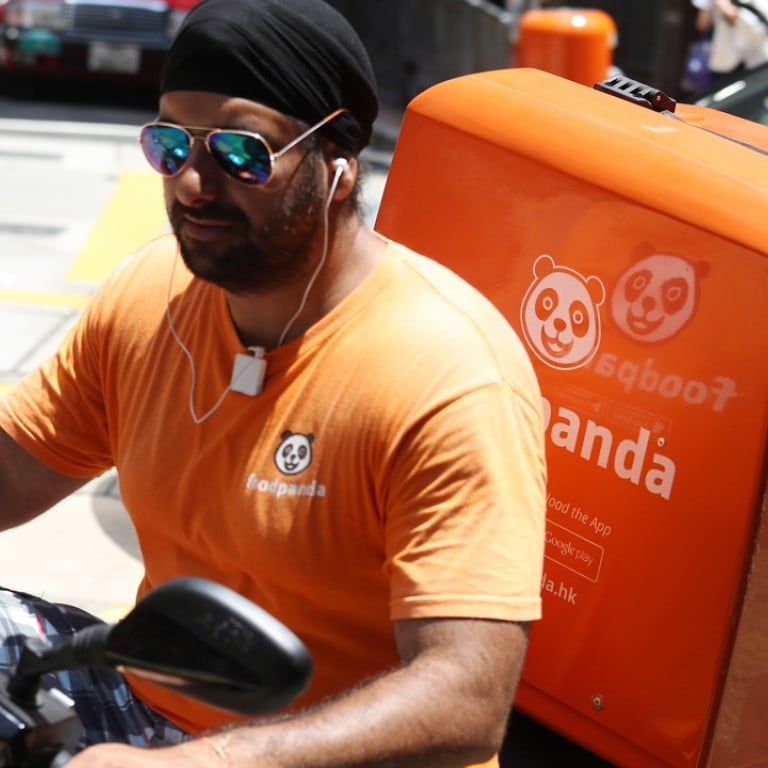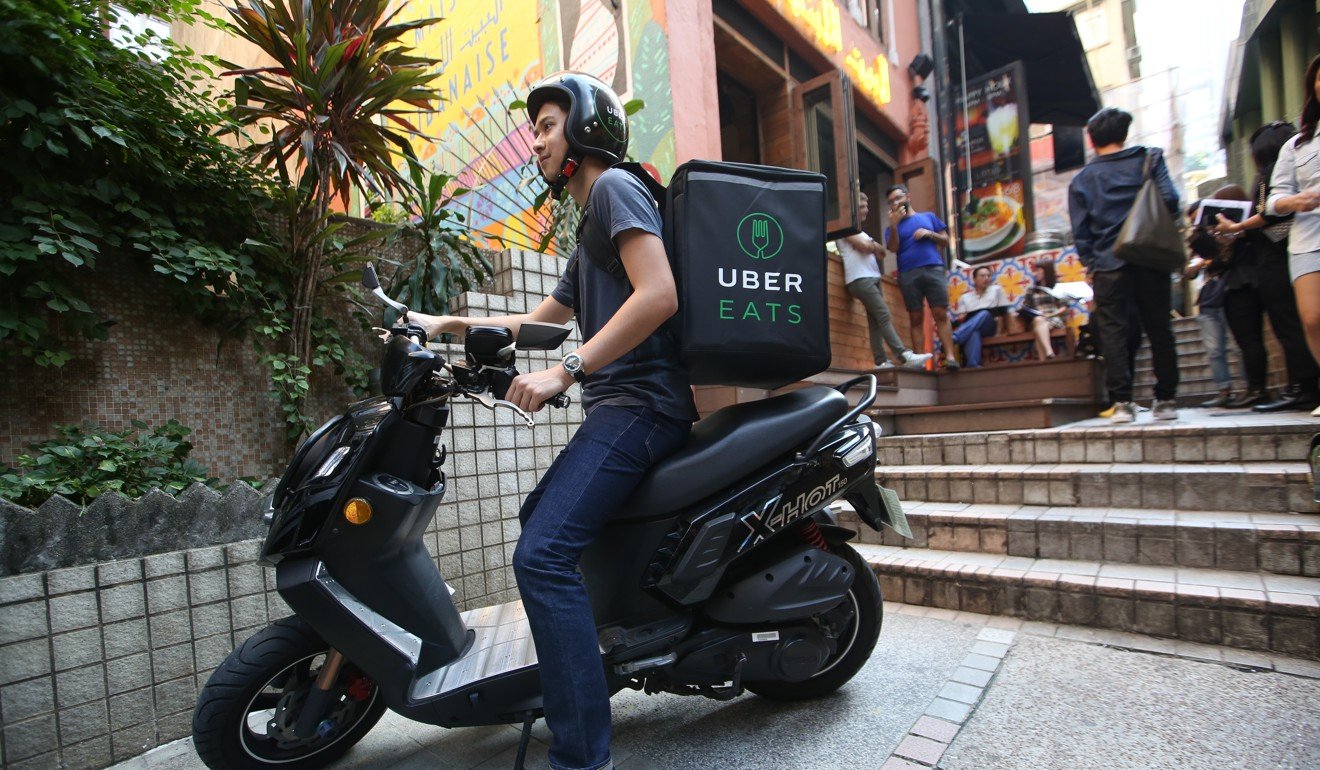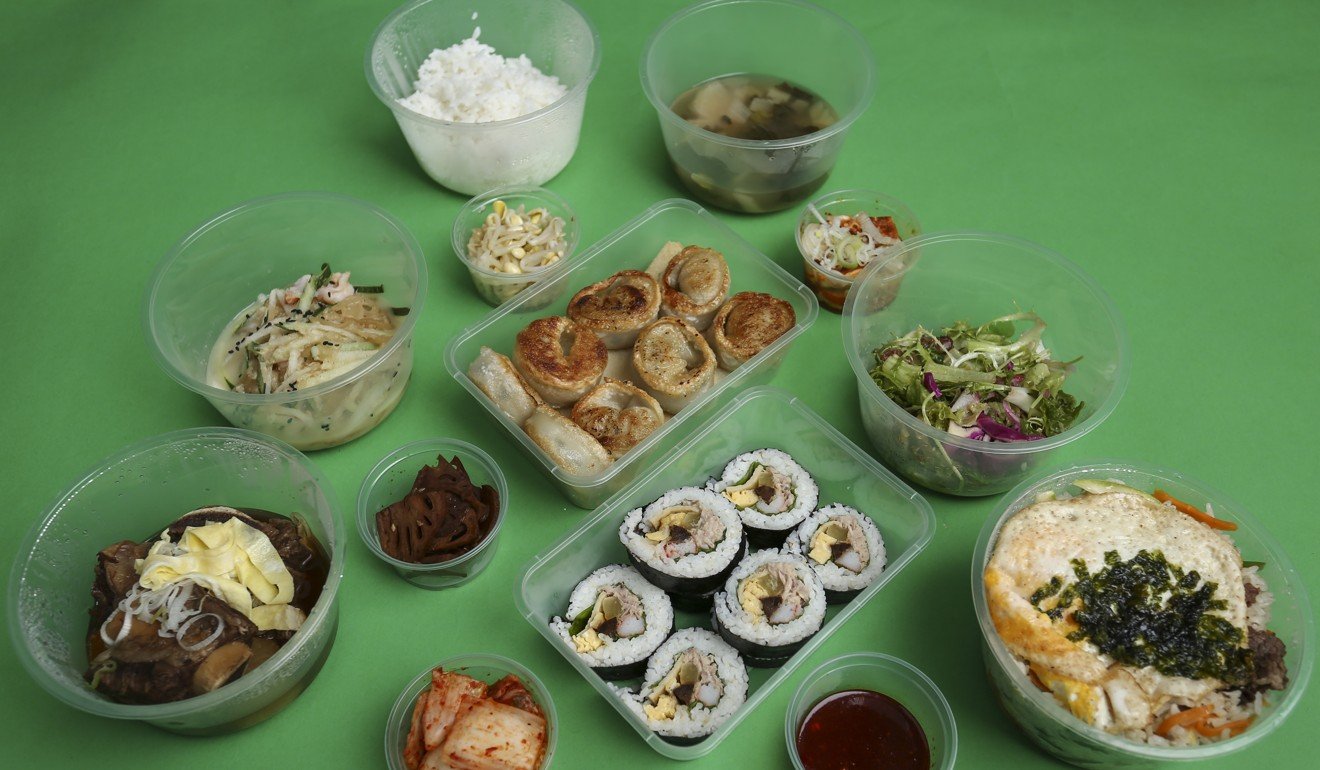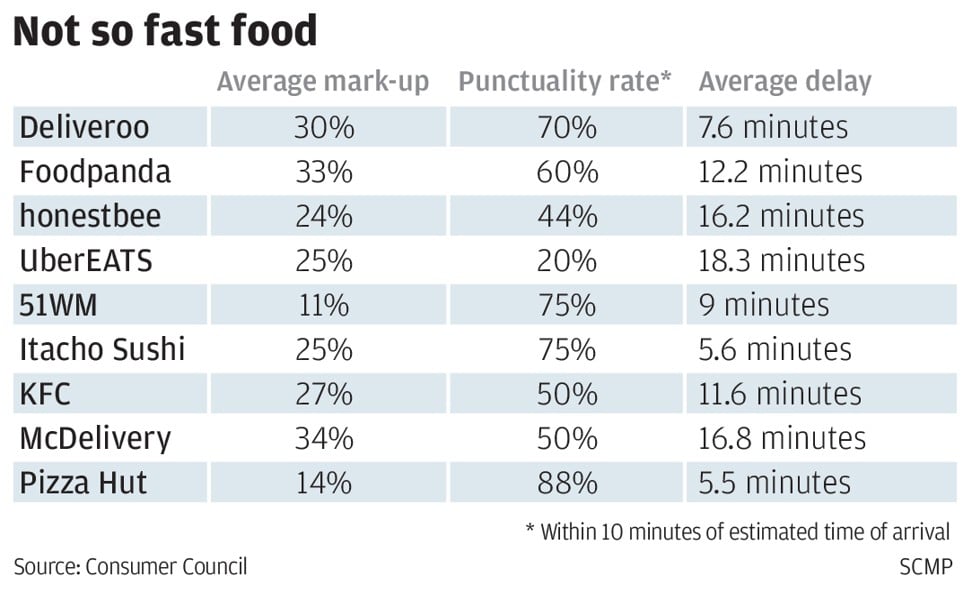
Getting food delivered to your doorstep? Beware of surcharges, and spoiled food, watchdog warns Hong Kong diners
The Consumer Council tested the services of nine food delivery apps in September, and pointed out that diners were enjoying convenience at the expense of environmental conservation
Ordering takeaway meals with a few taps on the phone is convenient, but Hongkongers should beware of hidden surcharges, spoiled food and unexplained order cancellations, the Consumer Council warned on Wednesday.
The watchdog tested the services of nine popular food delivery apps – Deliveroo, Foodpanda, honestbee, UberEATS, 51WM, Itacho Sushi, KFC, McDonald’s and Pizza Hut – in September, after noticing a growing number of complaints from consumers.
It received 22 complaints in the first 10 months of this year, about three times more than the same period last year.
Testers made 91 orders through the apps to evaluate pricing, surcharges, punctuality, the state in which meals arrived and customer support.
Food delivery apps ‘threaten Hong Kong’s food culture and peoples’ health’
But 12 of those orders made through 51WM and honestbee were cancelled without prior notice, while another order through UberEATS was voided after the service provider discovered the restaurant had actually folded.
When asked about a cancellation, an honestbee customer service representative told the tester to be patient. The company later clarified that orders not acknowledged by restaurants within 15 minutes would be scrapped, adding that these “teething” issues would improve with better staff training at eateries.
Prices of most food items were also higher on the apps than on the restaurant menus – costing between 11 and 34 per cent more, with a delivery fee added.
The biggest mark-up that testers came across was for a packet of sushi, which cost HK$200 if ordered through Deliveroo, but only HK$128 at the restaurant.
The council’s chief executive, Gilly Wong Fung-han, said it was not within its scope to advise on prices.
“Hong Kong is a free economy. If people are willing to pay more for convenience, then the mark-ups make sense,” she said.
Testers also experienced delays of varying lengths, with one order through honestbee arriving 51 minutes later than estimated.
There were also unpleasant surprises, said the watchdog, highlighting cases of melted ice-cream, warm sushi and spilt drinks and soup.

Euromonitor International, a market research provider, estimated the city’s food delivery market covering non-seating outlets was worth HK$423.2 million last year.
The food delivery apps offer meals from thousands of restaurants, with marketing experts predicting that these services will do well as Hongkongers continue to seek more convenient and more Westernised cuisines.
But the watchdog also highlighted another dark side of food delivery – that diners were enjoying convenience at the expense of environmental conservation. A large amount of plastic and paper waste is generated from packaging and delivering the meals.
Deliveroo told the Post that it had removed all plastic cutlery from its orders since August, unless customers requested for disposable utensils. The firm claimed this would reduce plastic waste by nine tonnes a year.

Already, some 2,000 tonnes of plastic, enough to fill 100 shipping containers, is sent to Hong Kong’s landfills daily, according to government figures. For plastic utensils and foam takeaway containers, the figure is 179 tonnes, or the weight of 10 double-decker buses.
Environmentalists warn that if this continues, landfills will reach full capacity and there will be a deluge of marine litter, making beaches no longer fit for public use, with marine life ingesting plastic waste.
Two in three Hongkongers use plastic disposables for dining, adding to city’s ‘waste crisis’
Environmental group Greenpeace on Tuesday called on fast food chains to take the lead and reduce plastic waste.
The council’s research and testing committee chairman Wong Kam-fai added to this call, urging restaurants to review their packaging processes, and for service providers to give customers sustainable packaging options.


